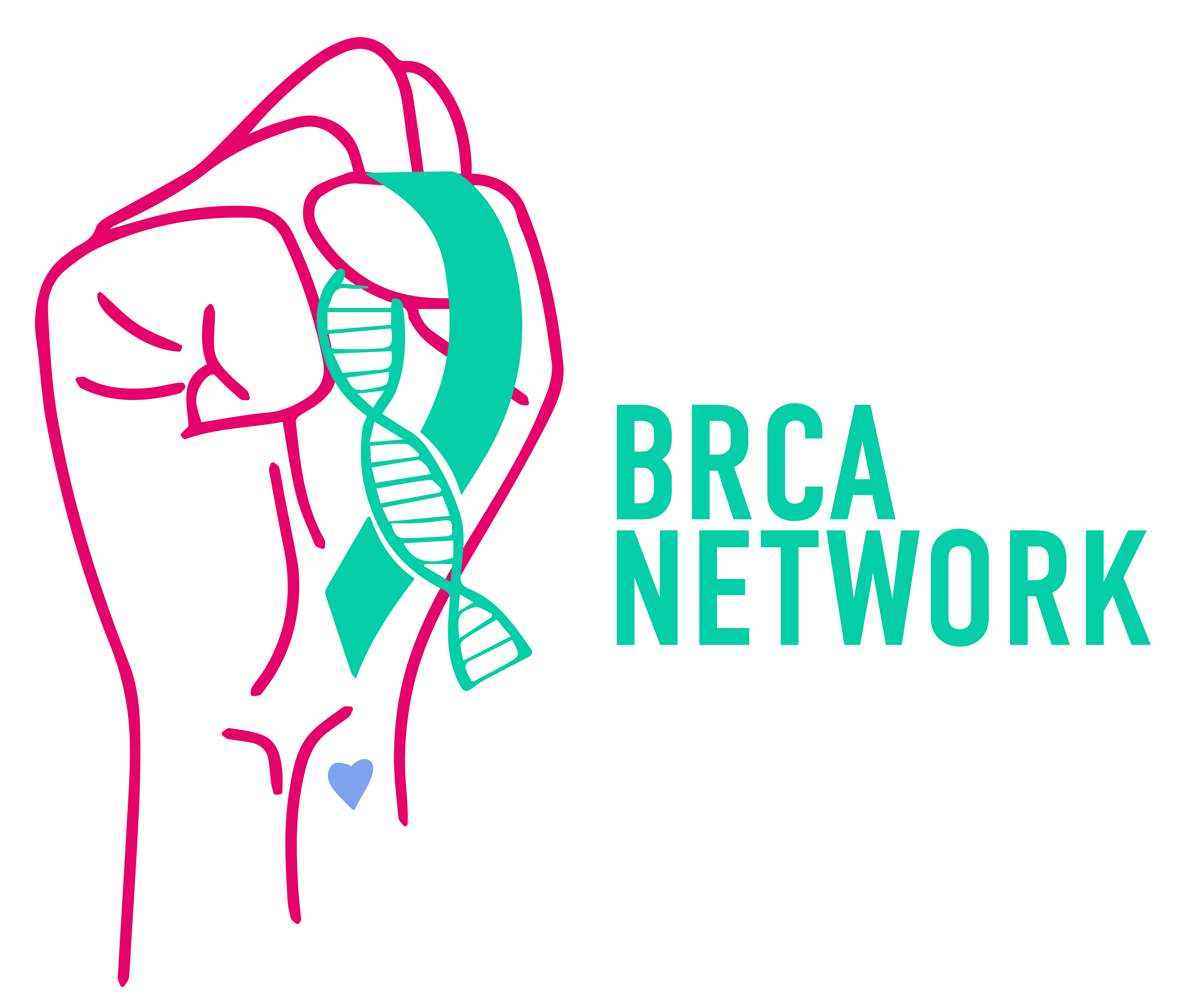Genetic testing
Genetic testing for inherited mutations
Is my cancer hereditary? Is there a genetic predisposition to breast, ovarian or prostate cancer in my family? Should I get tested for a certain genetic mutation? These questions require genetic counselling. A genetic examination will analyse your personal and family medical history and will assess your hereditary risk. The geneticist can then prescribe genetic testing to confirm or exclude the diagnostic hypotheses.
Genetic consultations are aimed at people who have, or who fear they have, a hereditary risk of a particular disease. In Belgium, a consultation in a Human Genetics Center specialising in oncogenetics refers to women and men whose family history suggests a hereditary risk of breast, ovarian or prostate cancer, regardless of whether they have developed cancer or not.
Genetic testing for hereditary breast and ovarian cancer looks for mutations in the BRCA1 and BRCA2 genes, but depending on your family history your geneticist may suggest testing using a multigene panel, which looks for mutations in multiple genes at the same time. In Belgium the minimal set of genes which are required for breast and ovarian cancer risk testing includes the following genes: BRCA1, BRCA2, PALB2, BARD1, BRIP1, RAD51C, RAD51D, ATM, CHEK2, TP53, MLH1, MSH2 and MSH6 genes.
Should you get tested?
Genetic testing is a family matter. In fact, the unit of work in medical genetics is the patient’s family, not just the patient! Genetic screening of a family normally starts with testing an affected individual (a person affected by cancer) to try to identify a mutation in one of the predisposing genes. If a genetic mutation is identified, subsequent analysis of family members should take a stepwise approach based on the degree of relatedness. Exceptions to the step-by-step family screening approach are accepted for relatives who are deceased or cannot be contacted for any reason.
According to the latest Belgian guidelines, the following elements should be considered to determine whether you are at high risk and should therefore be tested for a BRCA (or similar – see above) gene mutation, but some discretion is left to clinical judgement:
If you are the affected family member (cancer diagnosis):
1. You are a woman with breast cancer AND one of the following:
-
- you were diagnosed before or at age 50
- you have had or have bilateral breast cancer and your first cancer was diagnosed before 60yrs
- you have had triple negative breast cancer before 60yrs
- you have HER2 negative (hormone receptor-negative or hormone receptor-positive) breast cancer eligible for PARP-inhibitors
- you have had ovarian cancer or pancreatic adenocarcinoma at any age
- you were diagnosed before age 60 and you have one relative with bilateral breast cancer, or breast cancer diagnosed before 60yrs, or prostate cancer diagnosed before 60yrs
- you have a first or second degree relative with male breast cancer, ovarian cancer, pancreatic adenocarcinoma, or metastatic prostate cancer
- 3 or more individuals in your family with breast cancer and/or prostate cancer, one is a first degree relative of the other two (excluding male transmitters if father is not affected) and one diagnosed at an early age (< 60yrs)
- you are an individual of the Ashkenazi Jewish ethnicity
2. You are a woman with high grade epithelial ovarian cancer at any age
3. You are a man with breast cancer
If you are the unaffected family member (no cancer diagnosis):
1. You are a first degree relative of one of the above cases. If you have never had cancer but are concerned you may have a genetic predisposition to cancer, your family member with cancer will be asked to get tested first, if he or she has not already done so. If no affected family member is available (e.g. if he or she is deceased), the unaffected family member with the highest probability of mutation should be tested first.
Benefits of genetic testing
If you have cancer
- Accurately identify your cancer type
- Receive information on the type of surgery to consider (treatment and/or prevention)
- Benefit from targeted therapies
- Participate in treatment clinical trials enrolling people with hereditary cancer
- Identify the cancer risk for other members of your family
- Take action to avoid transferring the risk to your future children
If you don't have cancer
- Better understand your cancer risk and make medical decisions about cancer screening and prevention
- Take action to avoid transferring the risk to your future children, if you test positive
- A negative test can provide some relief if a mutation runs in your family
How to get tested in Belgium
- First oncogenetic consultation: during this first consultation, the geneticist will review your medical records and your family’s medical history. The geneticist, or a genetic counsellor, will establish the family tree (maternal and paternal branches) starting from the family history and will then assess your cancer risk and the benefits of carrying out a genetic test.
- List of doctors who can bill “genetic counselling” services (INAMI – updated 2/2024)
- Prices doctors, consultations and visits (INAMI – 01-04-2024)
- Psychological assessment (before and after genetic testing): genetic counselling includes one or more consultations with a psychologist. The psychologist’s mission is to accompany and support the person requesting genetic counselling throughout the process, from the test to the announcement of the result. The psychologist can support you and your concerned family members in accepting the result and in making decisions.
- Genetic testing: the test consists of a simple blood test for which you must not be fasting. If you are undergoing treatment for breast, ovarian or prostate cancer, results may come more quickly so you have the information you need for your treatment plan.
ADMIN INFO The test is covered almost entirely by social security (INAMI) via compulsory health insurance. The patient fee (moderate rate) is limited to approximately 9 euros per analysis. The genetic test is reimbursed by the INAMI if it is carried out by a laboratory belonging to one of the 8 recognised Centres for Human Genetics in Belgium, and if they are carried out by a doctor authorised to perform them (see list of doctors authorised to provide genetic examination services – INAMI, updated 1/2024). However, in certain hospital settings, an additional fee may be requested by the geneticist, in agreement with the INAMI (status of the doctor partially exempted from the agreement).
- Result disclosure and second consultation: after 2 to 3 months (depending on the test performed), the genetic test results will be delivered. In all cases (positive, negative or ambiguous results), you will be informed. The result is mainly disclosed in a counselling visit, but it can also be disclosed by phone (if pre-agreed with the patient). During this second consultation, the geneticist will explain the results of the genetic test, interpreted in a clinical context, and their medical implications, focusing in particular on follow-up and the means to prevent genetic risks in the patient and other relatives at risk.
IMPORTANT The detection of a genetic alteration does not constitute a cancer diagnosis! The presence of a constitutional genetic alteration indicates an increased risk of cancer, not a diagnosis of cancer.
Three possible results
POSITIVE RESULT | This means a gene alteration that increases your cancer risk is present. This result:
|
NEGATIVE RESULT | This means there was no identified cancer-causing alteration in the genes and that your risk to develop cancer is likely to be similar to the rest of the general population. You should still attend the screening programmes available in Belgium (e.g., breast cancer or cervical cancer screening) just as everyone else. If you test negative and have cancer, the result shows that your cancer is not caused by one of the altered genes that you were tested for. However, keep in mind that you are only “negative” for the alterations you were tested for, so be aware of which genetic alterations were tested since genetic testing is developing overtime. If you test negative, but there are several other cancers in the family, and you fulfil certain ‘high-risk’ criteria (family history), you should still see a genetics expert. They will assess your risk based on your family history itself. |
AMBIGUOUS RESULT | Sometimes genetic tests find alterations in the genes that cannot be interpreted in a meaningful way. This occurs occasionally and is called a Variant of Unknown Significance (VUS). Clinicians and scientists are still actively working to learn more about uncertain changes and cancer risk. However, genetic counsellors can help you understand what a VUS may mean in terms of cancer risk. Until the interpretation of the variant is clarified, management of risk should be based on family history and other risk factors. However, it is important that a person who has a VUS test result regularly obtains updated information from the testing provider in case that VUS is reclassified as a harmful or likely harmful variant. Moreover, over time, in a small proportion of people, these gene alterations can be reclassified. |
POSITIVE RESULT
This means a gene alteration that increases your cancer risk is present. This result:
- helps you decide on enhanced screening or surgery to reduce your risk of cancer, if you do not have or never had cancer.
- allows you to make decisions about your treatment, if already diagnosed with cancer.
- supports genetic testing of relatives and allows them to reduce their cancer risk.
- supports your fertility preservation/family planning, if you plan to have a child.
NEGATIVE RESULT
This means there was no identified cancer-causing alteration in the genes and that your risk to develop cancer is likely to be similar to the rest of the general population. You should still attend the screening programmes available in Belgium (e.g., breast cancer or cervical cancer screening) just as everyone else. If you test negative and have cancer, the result shows that your cancer is not caused by one of the altered genes that you were tested for. However, keep in mind that you are only “negative” for the alterations you were tested for, so be aware of which genetic alterations were tested since genetic testing is developing overtime.
If you test negative, but there are several other cancers in the family, and you fulfil certain ‘high-risk’ criteria (family history), you should still see a genetics expert. They will assess your risk based on your family history itself.
AMBIGUOUS RESULT
Sometimes genetic tests find alterations in the genes that cannot be interpreted in a meaningful way. This occurs occasionally and is called a Variant of Unknown Significance (VUS). Clinicians and scientists are still actively working to learn more about uncertain changes and cancer risk. However, genetic counsellors can help you understand what a VUS may mean in terms of cancer risk. Until the interpretation of the variant is clarified, management of risk should be based on family history and other risk factors. However, it is important that a person who has a VUS test result regularly obtains updated information from the testing provider in case that VUS is reclassified as a harmful or likely harmful variant. Moreover, over time, in a small proportion of people, these gene alterations can be reclassified.
Sharing results with family
If the genetic test has confirmed that you have an inherited genetic mutation, this will also have a direct impact on people close to you (brothers, sisters, children, parents, uncles, cousins, etc.). It’s very important to talk to them about it. In fact, if you are the first person in your family to be diagnosed with a genetic mutation, you will need to find a way to share this information with your family. Even if you are not the first person in your family to get tested, there may be family pressures to deal with.
Predisposition to cancer is a complex topic, and it is not always easy to talk about it with close people and relatives who perhaps you haven’t spoken to for a long time. Remember that you are not responsible, that you yourself have inherited this genetic mutation, and that knowing your risk means you and your family members can better control it!
The 8 accredited centres for human genetics in Belgium have specialised (onco)psychologists who can support you in this process. The links below include helpful guides on how to announce the mutation to your family.

We can support you in various ways:
- Contact us via our helpline
- Join our online community group
- Contact one of our buddies
- Read the testimonials
Useful resources:
- BeProTest – en parler à l’entourage / erover praten met je naasten (FR/NL)
- Geneticancer – L’intérêt du test génétique (FR)
- Geneticancer – L’annonce aux proches (FR)
- FORCE – Sharing information with adult relatives / Sharing information about hereditary cancer with children (EN)

 BRCA network asbl/vzw
BRCA network asbl/vzw